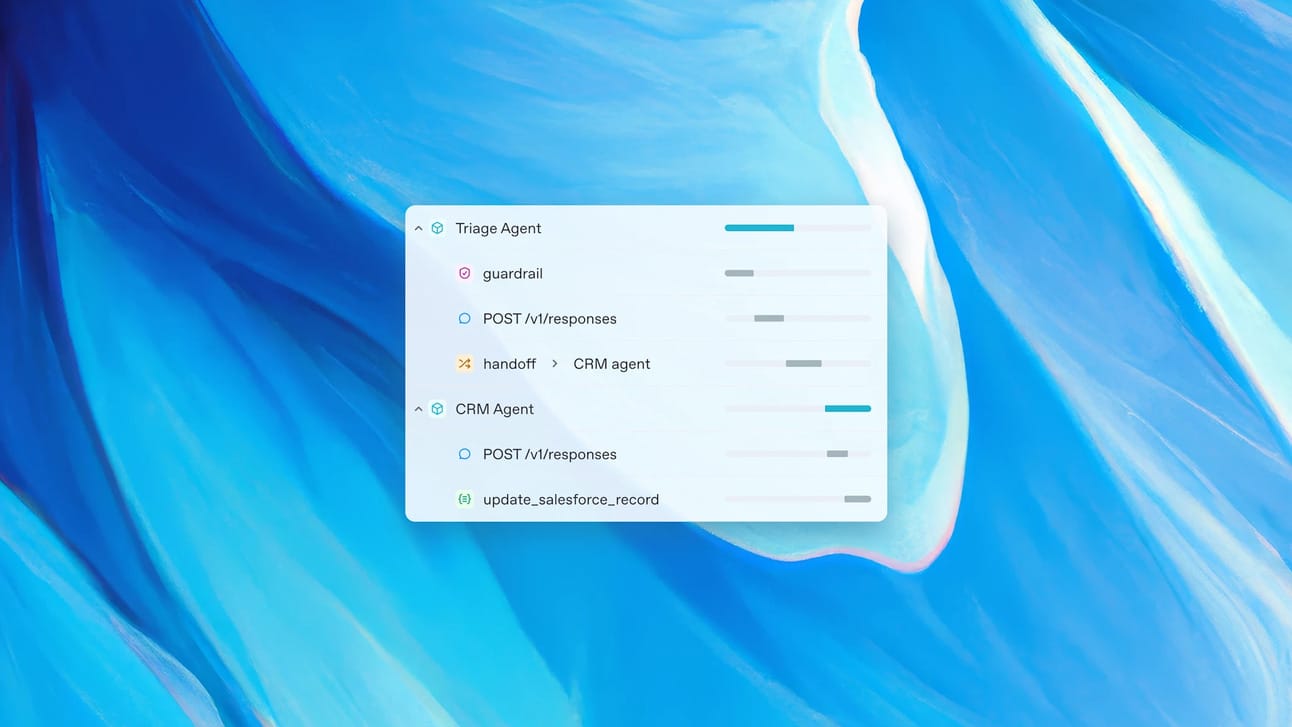- AI Weekly Insights
- Posts
- AI Weekly Insights #69
AI Weekly Insights #69
AI in Gaming, Smarter Assistants, and Training Data Fights
H5appy Sunday,
AI is leveling up! This week for ‘AI Weekly Insights‘ #69, Xbox is introducing Copilot for Gaming, giving players an AI-powered sidekick, while OpenAI is rolling out new tools to supercharge AI agents. Meanwhile, Apple is hitting pause on its next-gen Siri, and OpenAI & Google are making waves in a copyright battle over AI training data.
Ready? Let’s dive in!
The Insights
For the Week of 03/09/25 - 03/15/25 (P.S. Click the story’s title for more information 😊):
What’s New: Ahead of the Game Developers Conference (GDC), Xbox revealed Copilot for Gaming, an AI-powered voice assistant meant to improve how players experience games. It can give strategic advice, help manage in-game tasks, and even throw in some lighthearted trash talk.
How Copilot Works: Copilot for Gaming is designed to be more than just a basic assistant. It can analyze a player's past choices to recommend strategies and even adapt to individual playstyles. During a press demonstration, Microsoft showed its ability to provide real-time tips, like suggesting the best Overwatch character based on team balance and map selection. To make sure its advice is accurate, Xbox is working closely with game studios instead of relying on generic internet searches. Copilot can also notify players when friends are online, recommend new games, and even install updates automatically. Right now, the feature is only available through the Xbox mobile app, but the company plans to expand and improve it based on user feedback.
Why It Matters: AI gaming assistants like Copilot could change how players interact with games, making them feel more personalized and engaging. Some may enjoy the extra help, while others might worry that AI guidance could take away the challenge of improving through practice. AI in gaming isn’t just about convenience, it’s about making experiences more personal. Features like adapting to a player’s style and offering dynamic suggestions could make games more immersive and keep players invested. The key will be making sure AI helps without making games too easy or predictable. With Microsoft, Google, and Sony all developing AI companions, this could mark the beginning of a new era in gaming.
What's New: OpenAI has launched the Responses API, a set of tools designed to help developers build AI agents capable of web searches, file scanning, and automating computer tasks. The new API replaces OpenAI’s Assistants API, which will be phased out by mid-2026.
Building Smarter AI Agents: The Responses API gives developers access to OpenAI’s latest AI models, including GPT-4o search, which can browse the web and provide sources for their answers. OpenAI claims these models are more accurate than previous ones, with GPT-4o search scoring 90% on a company benchmark that tests fact-based questions. The API also includes a tool that can quickly scan company files for relevant information, with OpenAI promising that these files won’t be used to train its AI models. Another major feature is the Computer-Using Agent (CUA) model, which can automate repetitive computer tasks like data entry and app navigation. OpenAI acknowledges that AI agents still have limitations but is also releasing an open-source toolkit called the Agents SDK. This toolkit will help developers safely integrate AI agents into their systems while allowing them to monitor and troubleshoot the technology.
Why it Matters: AI agents have been a hot topic in the tech world, but many companies have struggled to make them useful in everyday applications. OpenAI’s Responses API is an attempt to change that by providing the tools needed to build more effective AI assistants. While the technology won’t instantly fix common AI problems like inaccurate information, it’s a step toward making AI agents more reliable for businesses. With many predicting that 2025 will be the year AI agents become widely used in the workforce, this release shows OpenAI’s focus on turning AI into a practical tool. Whether this API will truly push AI agents forward or run into the same issues as previous attempts remains to be seen, but the industry is watching closely.

Image Credits: OpenAI
What's New: Apple has delayed its rollout of a more personalized and context-aware Siri, citing the need for additional development time to refine the features initially expected this spring.
A Bumpy Road to Smarter AI: Apple Intelligence, unveiled at WWDC last year, promised significant upgrades to Siri, including enhanced personal context awareness and the ability to take actions across apps. However, reports suggest Apple executives, including software chief Craig Federighi, have expressed concerns over the features' performance, leading to an internal reassessment. Bloomberg’s Mark Gurman reports that some within Apple’s AI division fear the current work may need to be entirely rebuilt. Additionally, a more modernized, conversational Siri may not arrive until iOS 20 at the earliest, further pushing back expectations. While Apple has made strides in improving Siri with features like ChatGPT integration, this delay signals the challenges of implementing AI-driven personal assistants at scale.
Why it Matters: Apple’s delay highlights the difficulties in delivering an AI-powered assistant that meets both technical and user experience expectations. Siri has long been criticized for lagging behind competitors like ChatGPT and Google’s Gemini, and this setback could widen that gap. Apple’s emphasis on privacy and on-device AI processing also adds complexity, making it harder to match cloud-based AI solutions. The delay raises questions about whether Apple can successfully execute its vision for Siri while keeping up with the fast-moving AI industry. While a refined and more capable Siri may eventually arrive, for now, Apple users will have to wait longer for a truly intelligent voice assistant.

What's New: OpenAI and Google are asking the US government to allow AI models to be trained on copyrighted material under fair use protections. They argue that not having this data could put the United States at a disadvantage in the race for AI dominance.
AI Copyright Battle: OpenAI believes that restricting AI from using copyrighted content will weaken the US against competitors like China, where companies face fewer restrictions. They specifically mention DeepSeek, an emerging Chinese AI company, as an example of how the US could fall behind. Google agrees, stating that fair use and data mining exceptions are critical to AI progress. The company warns that requiring AI firms to negotiate with copyright owners for every piece of data would slow innovation and create legal complications. Meanwhile, legal battles over AI training are intensifying. Companies like The New York Times and authors such as George R.R. Martin are suing AI developers, accusing them of using their work without permission.
Why it Matters: This is one of the biggest fights in AI today. OpenAI and Google are making a bold case that restricting access to copyrighted content could put the US behind in the global AI race. They even argue that data access is a national security issue. However, there are still big legal and ethical concerns, including whether AI training qualifies as fair use and how creators should be compensated for their work. While AI companies insist that access to more data is essential for innovation, many content creators believe their work is being taken without proper permission. The outcome of this debate could shape how AI models are built in the future and set new rules for digital copyright law.

Thank you for diving into this week’s AI insights! As AI continues to evolve at lightning speed, these conversations matter more than ever. Whether you’re here for the breakthroughs, the debates, or the sheer curiosity of what’s next, your support means a lot.
Let’s keep the discussions going, and as always…
Until next Sunday, stay curious and engaged!
Warm regards,
Kharee